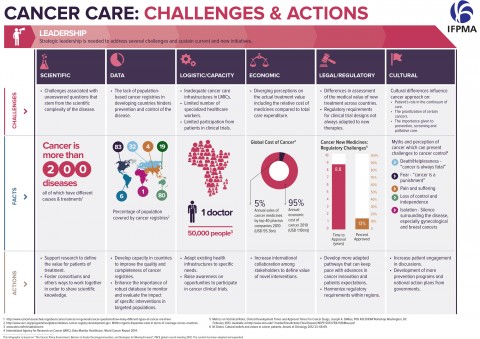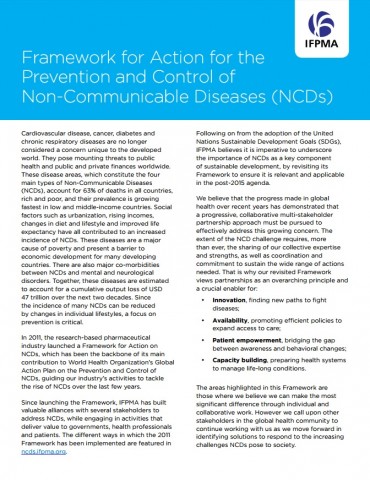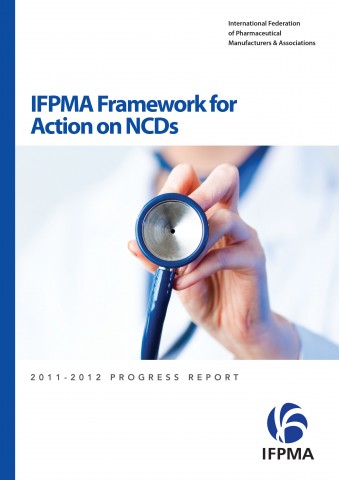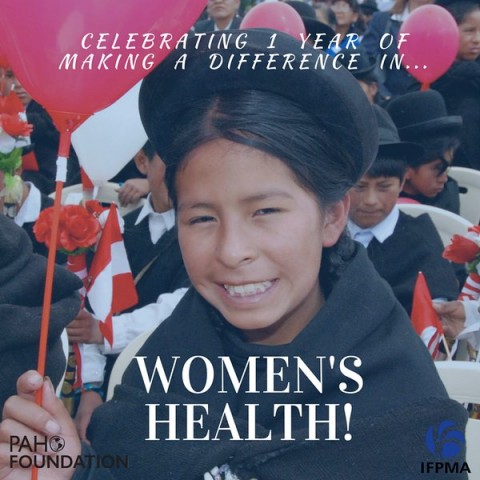
Cancer is one of the greatest health challenges of our time, and a leading cause of death in every corner of the world. Within the next two decades it is expected we reach 22 million new cases of cancer each year, the majority of them in low-and middle-income countries (LMICs). Without the preventative measures, the disproportionate majority of mortality from cancer will also occur in LMICs, where there is limited availability of screening, early detection, and access to treatment.
The member companies and associations of the International Federation of Pharmaceutical Manufacturers and Associations (IFPMA) endorse the efforts of the global health community to reduce incidences and death from cancer worldwide. Within our industry’s Framework of Action for the Prevention and Control of Non-communicable Diseases (NCDs), IFPMA and its members are committed to supporting countries towards reaching the NCD targets of the World Health Organization (WHO), including the target of a 25% relative reduction in premature mortality from cancer and other NCDs by 2025.
In our industry’s first role as researchers and developers of medicines, IFPMA companies today work on over 3000 projects for cancer treatments. These innovative treatments come in addition to a legacy of medicines for cancer currently available in generic form. Since 1980, 83% of life expectancy gains in cancer are attributable to improved treatments.
While treatment remains a critical factor, addressing cancer requires recognition of its complexity and management throughout the whole continuum of care, including stages such as prevention, diagnosis and palliative care. As such, IFPMA members are engaged in a number of health partnerships with governments, academics, health workers and civil society to address barriers to cancer care in LMICs.
Visit the IFPMA Developing World Health Partnerships Directory to see health partnerships from the industry that work towards enhanced access to cancer care. The directory holds over 45 case-studies from partnerships that fight cancer, including photos, videos, and stories from people working on the projects or who have felt health partnerships change their lives.
Programs include a special awareness week for head and neck cancer in Russia, to increase access to quality screening for the disease, and wide-scale training programs for health workers from Eastern Europe to East Africa, to promote early diagnosis of cancer in their communities. Scaling up access to quality care for patients with cancer, our industry has partnered with academic groups and hospitals in LMICs to improve healthcare infrastructure, and develops access programs with ministries of health to improve availability of treatments.
Data is another crucial element in the fight against cancer. Therefore, pan-industry partnerships such as our work with PAHO Foundation on the Women’s Cancer Initiative look to improve the quality of completeness of cancer data and provide the local context for the roll-out of evidence-based cancer strategies.














